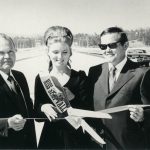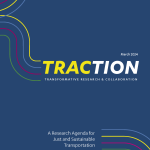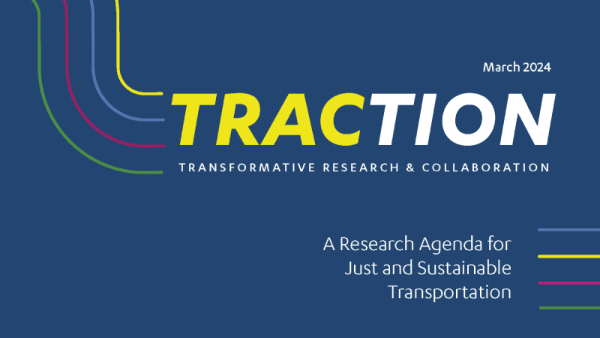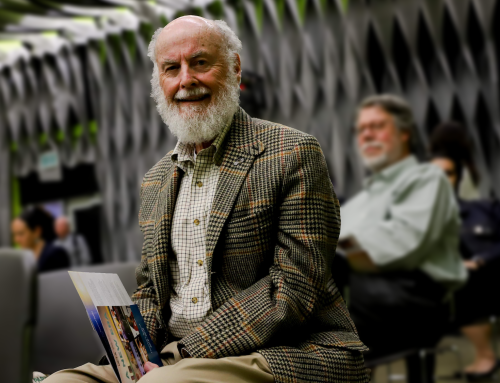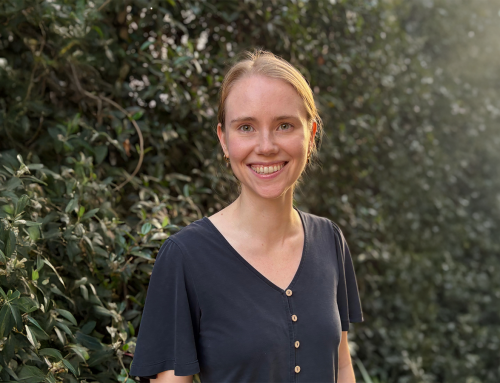MURP student ‘speaking up’ for equity in transportation and planning
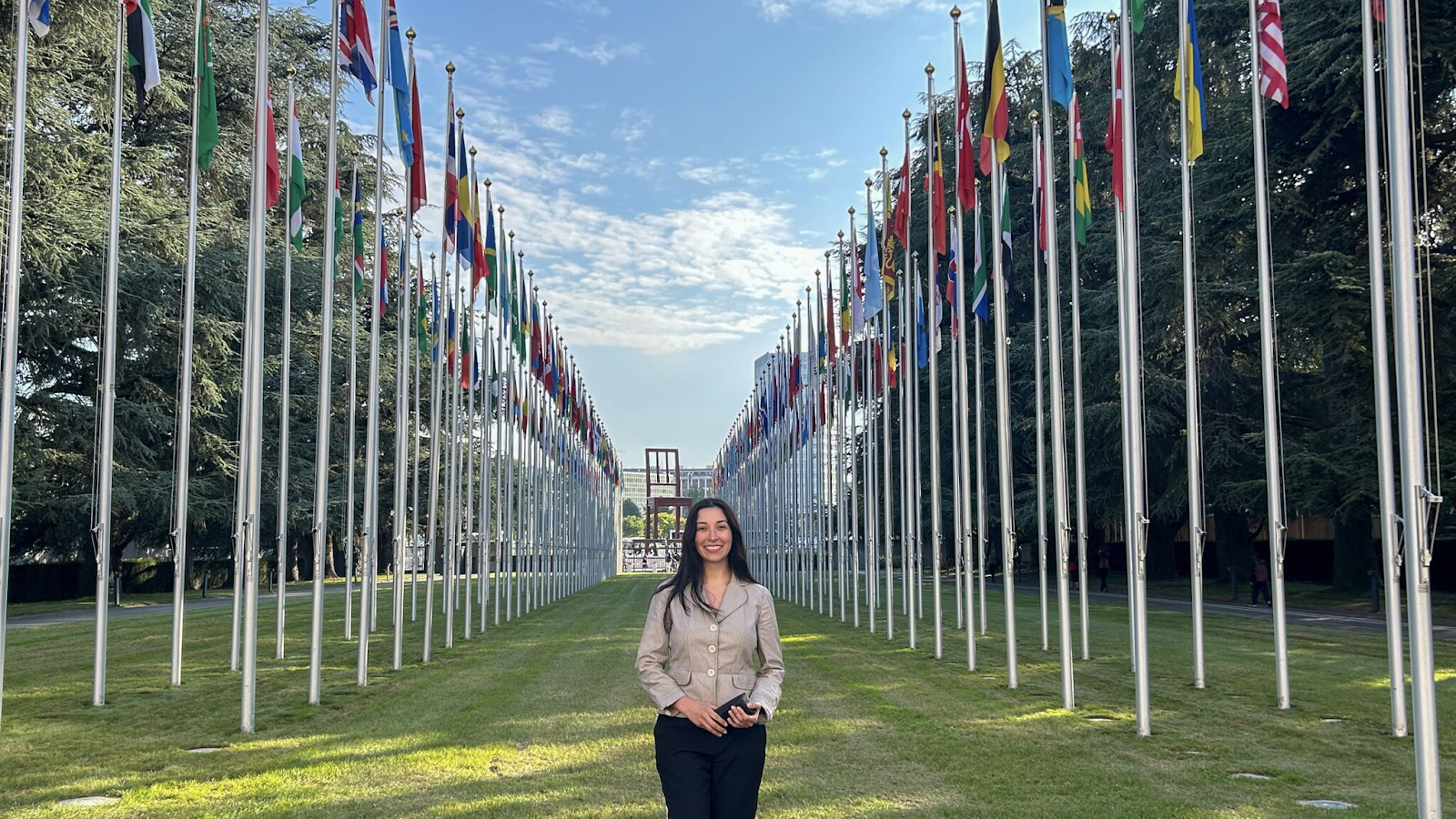
by Jordan Grimaldi
As a first-generation immigrant from Jalisco, Mexico, Veronica De Santos has experienced years of being silenced. “People have often underestimated my intelligence because of my accent,” De Santos recalled.
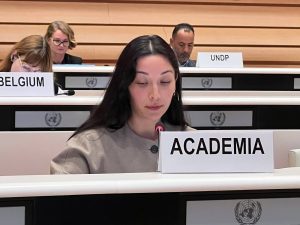
De Santos delivering a speech advocating for investments in educational scholarships during a UN forum fall 2024.
But when she had the opportunity to address the United Nations Forum of Mayors in Geneva, Switzerland, last fall, she knew she had to speak up.
During a segment on youth and future generations, De Santos listened as delegate after delegate emphasized the importance of including young people in decision-making on sustainable development goals now and in the future. Yet she did not see herself — or the communities she comes from — reflected in those discussions about “future generations.”
Determined to change that, she entered the queue to speak at the forum. Reflecting on her journey to the UN, De Santos credited her scholarships from the California Transportation Association, the American Planning Association Foundation, and the Kennedy King Scholarship, without which, she told the assembly, “I wouldn’t be able to be here … and I know many, many people like me who also want to be here but aren’t able to because they don’t have the resources they need in order to make that happen.”
She urged delegates to invest in educational scholarships in their home countries for underrepresented youth to have space at decision-making forums. Thinking of her own experience, she said, “The chances of me, [as a first-generation immigrant], being in a graduate program were already very low. But the chances of me being able to go to the United Nations were [practically] nonexistent.”
A path to transportation and planning
De Santos’s passion for sustainable transportation and community-based planning started during her undergraduate years at UCLA, where she worked as an operations assistant for the Institute of Transportation Studies. There, she began connecting her lived experiences — growing up and navigating around her own community — to the planning issues and conversations she was hearing around her.
Many of De Santos’s early encounters with planning often mirrored what she heard at the UN: a lot of technical jargon and a lot of people talking on behalf of communities that they did not represent. From her community engagement experiences, the moments that stood out most, and fueled her desire to improve planning, were those where inaccessible, technical language created barriers to meaningful participation.
“How can communities be expected to understand these complex technical concepts when they have historically been excluded from planning processes?” she asked.
Centering vulnerable communities — locally and globally
Motivated to challenge inequities like these, De Santos applied to the University of Geneva’s Innovation, Human Development and Sustainability semester abroad program. In Geneva, she deepened her understanding of governance and sustainability. Along with her fellow classmates, De Santos conducted deep dives into the UN’s 17 sustainable development goals, particularly those relating to transportation, water, housing, energy, and land use. Across these diverse contexts, she focused on centering local, grassroots solutions that prioritize vulnerable communities such as women, children, low-income people, and people of color around the world.
An inspired future
Since returning to UCLA, De Santos’s takeaways from her time in Geneva and experiences in planning have been top of mind. Reflecting on these lessons, De Santos, who was also a UCLA ITS fellow during her first year of graduate school, remains committed to leading change, grounded in her belief that simple, everyday actions can have a big impact — and even save lives: following speed limits, not blocking crosswalks, and being more mindful. Yet she also recognizes the importance of bold actions, like speaking up for those who have historically been silenced.
“Even though I was quiet for a long time, [I know now] that my purpose is to speak for those that systems don’t allow to have a voice … and represent them in the best way that I can.”
As De Santos nears completion of her Master of Urban and Regional Planning this spring, she is focusing on wrapping up a comprehensive planning project on enhancing the resilience of at-risk water systems in Los Angeles County. At the same time, she will analyze California’s transportation policies to identify strategies for reducing vehicle miles traveled and implementing active transportation safety measures in low-income communities to ensure safer, more accessible, and equitable mobility.
After graduation, she plans to continue pursuing her passion for equity and, of course, speaking up for inclusive planning.
Photo credit: Veronica De Santos
Recent Posts
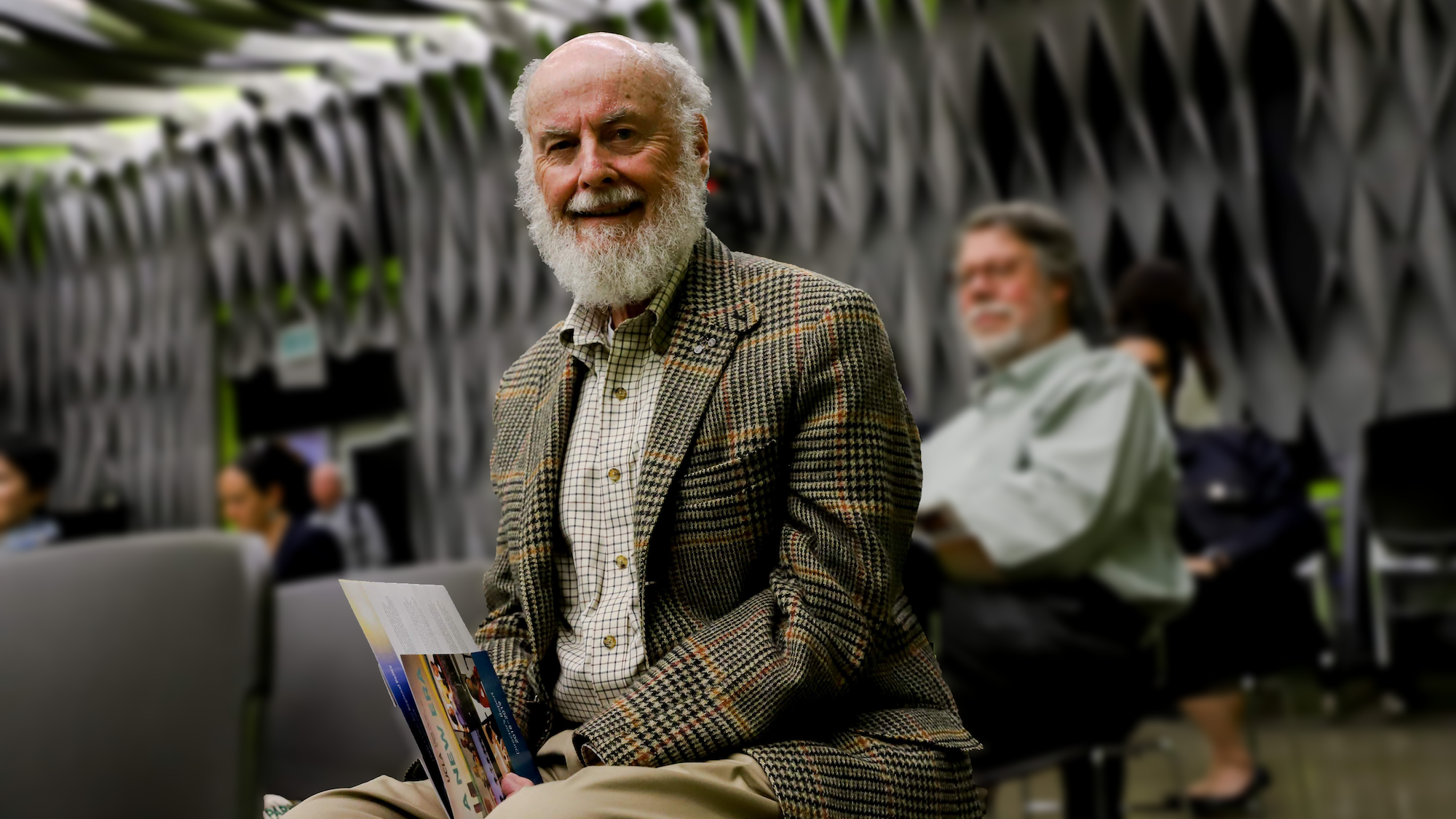
Remembering Donald Shoup
UCLA ITS’ 2nd director and a visionary scholar reshaped cities with his pioneering work on parking, inspiring legions of ‘Shoupistas’ and lasting change.

UCLA ITS funds research on vulnerable communities, LA fire response
Five rapid-response projects will explore transportation challenges and community engagement in disaster recovery


